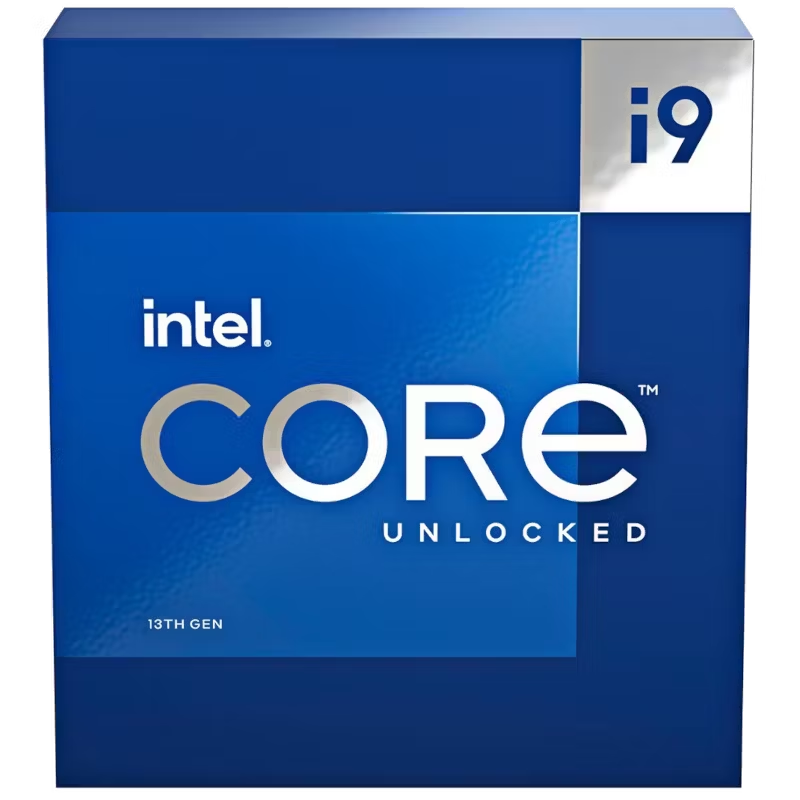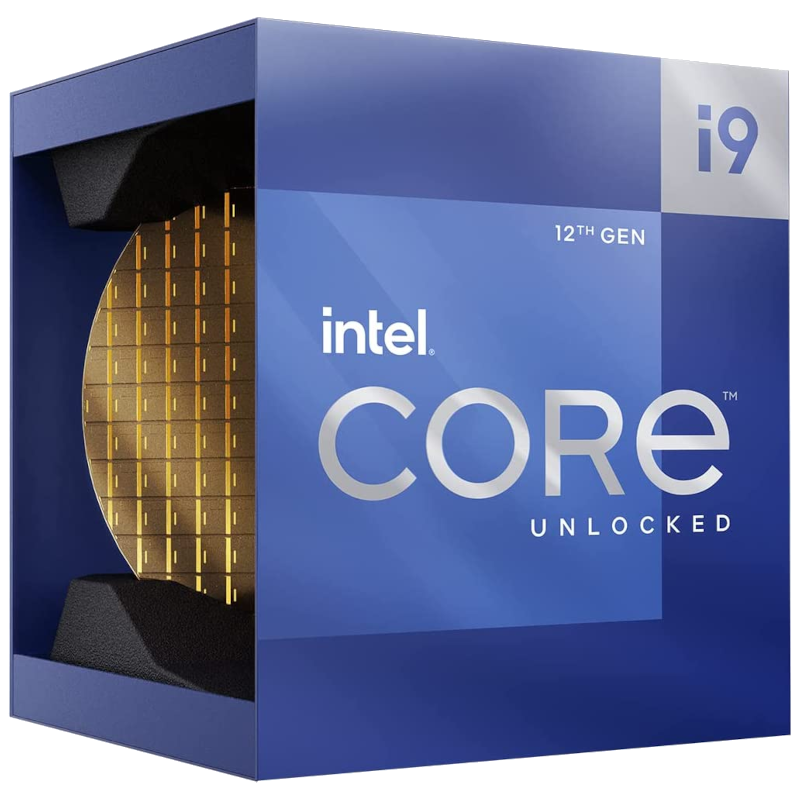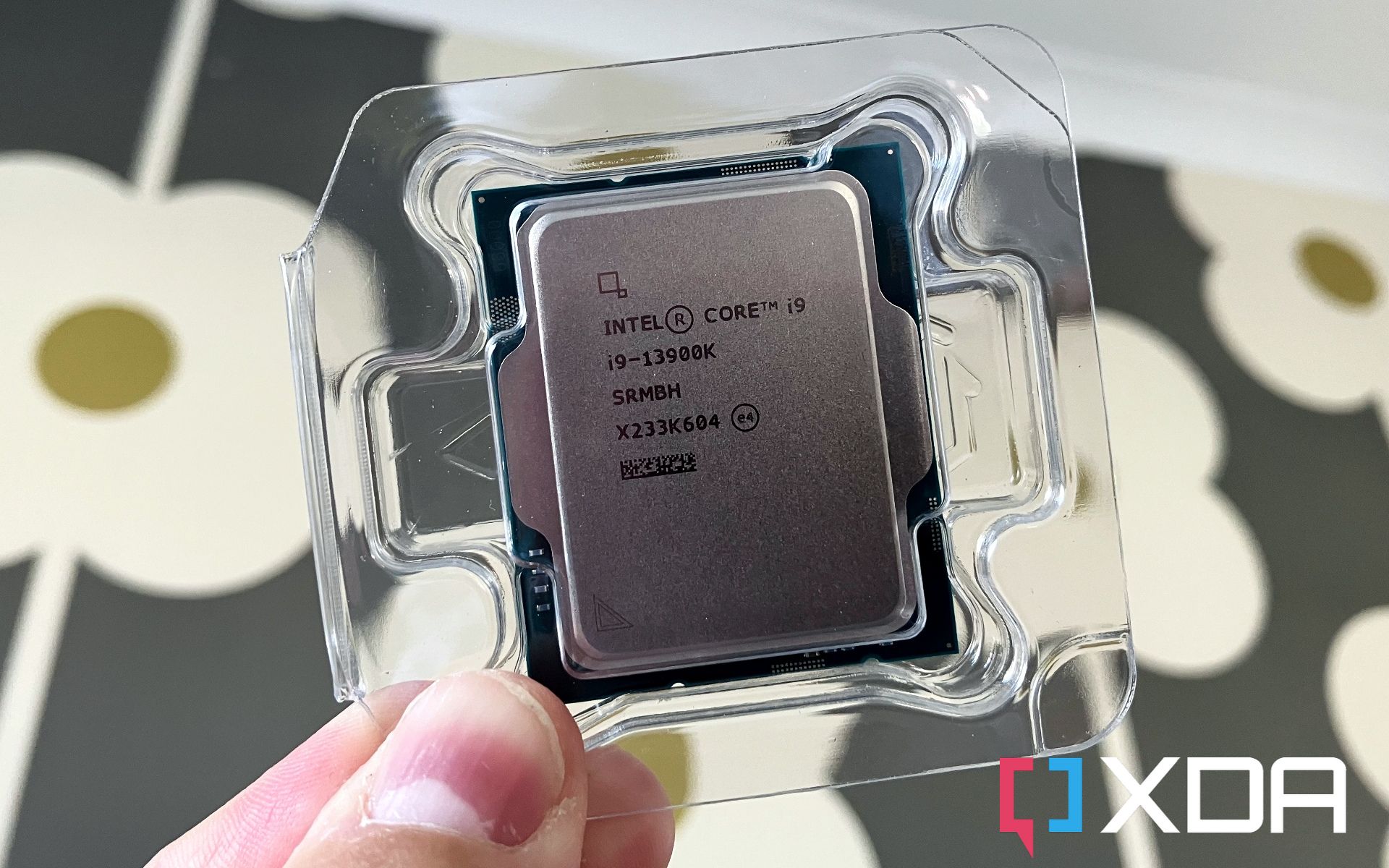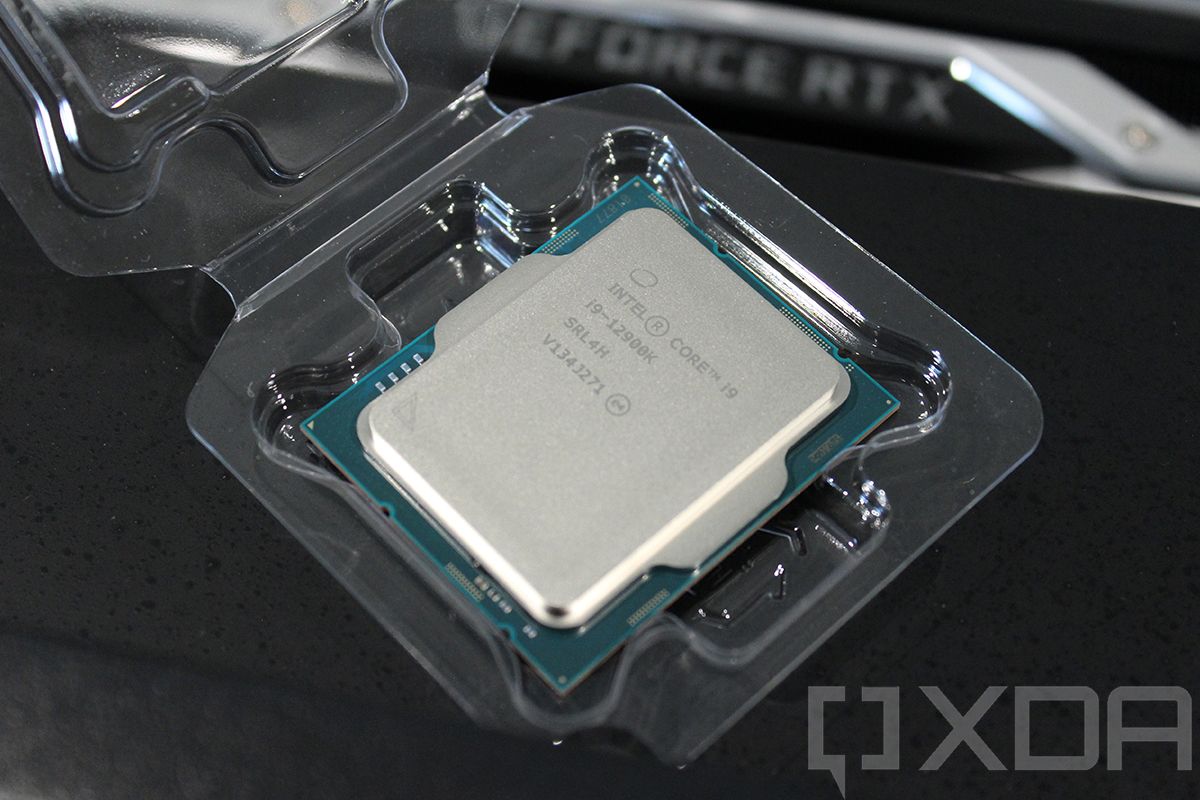-

Intel Core i9-13900K
Better performanceIntel's Core i9-13900K is the next step up from the 12900K, adding more E-cores, bumping burst speeds, and unleashing far superior performance.
Pros- More cores for better multi-threaded performance
- Slightly better single-threaded performance
- Slightly better gaming performance
Cons- More expensive
- Gets hotter under load
-

Intel Core i9-12900K
More affordableThis may be a last-gen processor compared to the 13900K, but the Intel Core i9-12900K is still worth considering if you want to save some money.
Pros- Cheaper and better value
- Runs a little cooler
- Works on the same motherboards as the Core i9-13900K
Cons- Worse multi-threaded performance
- Falls a little behind in single-threaded workloads and gaming
- Supply is running out
It should come as no surprise that the Intel Core i9-13900K is a brilliant processor, as we noted in our review. It has far more performance than most people could effectively utilize, but how does it compare to the older Intel Core i9-12900K? The latter, being a previous-gen processor, could help you save more money, but is it still worth buying? We're going to compare the specifications, performance, and value to determine which to buy or whether you should upgrade from the 12th-generation chip.
Intel Core i9-13900K vs. i9-12900K: Price & availability
The Intel Core i9-13900K is the newer processor and, as such, will be the more expensive option. You can find the 13th-generation processor for about $550, depending on whether there's a sale or not. The Core i9-12900K is older, but it's still available for purchase at retailers that still have stock. You can expect to save a little with the Core i9-12900K, which has dropped from its $589 MSRP to around $300 to $400.
-
Intel Core i9-13900K Intel Core i9-12900K Brand Intel Intel Cores 8P / 16E 8P / 8E Threads 32 24 Architecture Raptor Lake Alder Lake Process Intel 7 Intel 7 Socket LGA 1700 LGA 1700 Base Clock Speed 3GHz / 2.2GHz 3.2GHz / 2.4GHz Boost Clock Speed 5.8GHz / 4.3GHz 5.2GHz / 3.9GHz RAM DDR4-3200 / DDR5-4800 DDR4-3200 / DDR5-4800 PCIe 5.0 5.0 Graphics Intel UHD Graphics 770 Intel UHD Graphics 770 TDP 253W 145 W Power Draw 241 W Cache 36MB L3 + 32MB L2 30MB L3 + 14MB L2
Intel Core i9-13900K vs. i9-12900K: Same socket, different specs
Intel kept things simple when moving from Alder Lake to Raptor Lake processors. The 13th-generation chips were very similar to their 12th-generation predecessors but with more cores, more cache, and higher clock speeds. The 13900K is no different, but it definitely got the biggest upgrade of all the new CPUs, resulting in much better multi-threaded performance, along with modest boosts to single-threaded and gaming performance.
The 13900K sees its biggest advantage against the 12900K when it comes to core count. Both have eight performance cores (P-cores), which are the faster type of cores on modern Intel CPUs. However, while the 12900K pairs those eight P-cores with eight efficiency cores (E-cores, which are slower but more efficient), the 13900K bumps this up to 16 E-cores.
The 13900K's cores are also clocked higher than the 12900K's. The clock speed difference in P-cores is quite substantial, as the 13900K can hit all the way up to 5.8GHz with sufficient cooling while the 12900K can only do 5.2GHz at most, which is a 10% advantage. The difference with the E-cores is also considerable, with the 13900K's hitting up to 4.3GHz against the 12900K's 3.9GHz, another 10% difference. This makes a difference in multi-threaded and single-threaded workloads as well as gaming, but it's especially important for single-threaded and gaming.
The 13900K got the biggest upgrade of all the new CPUs, resulting in much better multi-threaded performance, along with modest boosts to single-threaded and gaming performance.
But the thing that makes the biggest difference for gaming is cache. While the 12900K's 30MB of L3 cache and 14MB of L2 cache isn't small, the 13900K takes it to a new level with 36MB of L3 cache and 32MB of L2 cache. This extra cache isn't nearly as useful for other applications, though — it's really just here for extra gaming performance.
However, the 13900K doesn't get all of this extra stuff for free. The 13900K doesn't have major efficiency improvements, so it ends up consuming much more power than the 12900K and is much hotter under full load. The 12900K already requires a pretty beefy cooling solution, and you'll probably want a liquid cooler with a 360mm at minimum for the 13900K. To get the best performance out of the 13900K possible, custom liquid cooling is recommended.
Otherwise, these two chips are similar. The manufacturing process for both processors is identical, using the tried and tested Intel 7 process, formerly known as 10nm. LGA 1700 is the socket used in both cases, meaning you can switch between 12th and 13th-generation processors without an issue. DDR4 and DDR5 RAM are supported across the board, and you can enjoy the fruits of PCIe 5.0. The integrated graphics are also the same on each CPU.
Intel Core i9-13900K vs. i9-12900K: Comparing performance
Looking at the specification sheet for both processors, it's not immediately clear just how much of a difference the additional cache, higher clock speeds, and more cores make to performance. However, we reviewed both processors and found the Core i9-13900K to be about 40% faster in terms of raw performance compared to the Core i9-12900K in multi-threaded benchmarks.
Let's start with Cinebench R23, which showcases just how much of a jump the Core i9-13900K makes with its additional cores and higher clock speeds. The former helps with an almost 12,000-point, or 45%, increase in multi-threaded testing. The latter allowed the Core i9-13900K to achieve a solid 100-point increase over its predecessor in the single-threaded test, which is only a 5% increase.
|
Cinebench R23 |
Intel Core i9-13900K |
Intel Core i9-12900K |
|---|---|---|
|
Single core |
2,114 |
2,017 |
|
Multi core |
38,610 |
26,802 |
It's a similar story with Geekbench 5. The Intel Core i9-12900K is no slouch, and its results are excellent for computing, but the 13900K is just that much better in multi-threaded performance.
|
Geekbench 5 |
Intel Core i9-13900K |
Intel Core i9-12900K |
|---|---|---|
|
Single core |
2,154 |
1,989 |
|
Multi core |
24,997 |
17,794 |
Let's take a quick look at 3DMark Time Spy Extreme (CPU score) results. The Intel Core i9-13900K managed more than 3,000 more than its predecessor, which is incredible. You'll notice this in games, especially those with higher CPU loads or when using a high-end GPU like the Nvidia GeForce RTX 4090.
|
Intel Core i9-13900K |
Intel Core i9-12900K |
|---|---|
|
12,547 |
9,179 |
Regardless of what you'll be doing on your PC, the Core i9-12900K and 13900K have ample performance to handle just about anything. They're both regarded as among the best CPUs for good reasons.
Which is right for you?
Choosing between the Intel Core i9-13900K and i9-12900K depends on what you desire from your PC build and how much you're willing to spend. If you want the best possible performance, the newer Core i9-13900K would be our recommendation. Intel made some minor changes to the 12900K processor to create the 13900K: more E-cores, more cache, and higher clock speeds. The end result is one of the best desktop-class processors around, without taking into account AMD's Threadripper series of enthusiast chips.

Intel Core i9-13900K
The Intel Core i9-13900K is a very powerful processor with more than enough cores and threads to handle almost anything you can throw at it. It'll cost you the MSRP, but is the latest and greatest from team blue.
The Core i9-12900K is still worth considering if you want to save money, and that's pretty much it. If you already own the 12900K, we wouldn't recommend upgrading to the successor unless you truly require the additional cores and performance. Because the two processors are part of the same socket and chipset generation, the differences are minor compared to the leap from 11th to 12th Gen Intel processors.

Intel Core i9-12900K
Intel's previous-gen Core i9-12900K is still an excellent processor. It's a little slower and less capable than the newer 13900K, but you're still getting a mightily impressive 16-core chip with a considerable discount applied.


